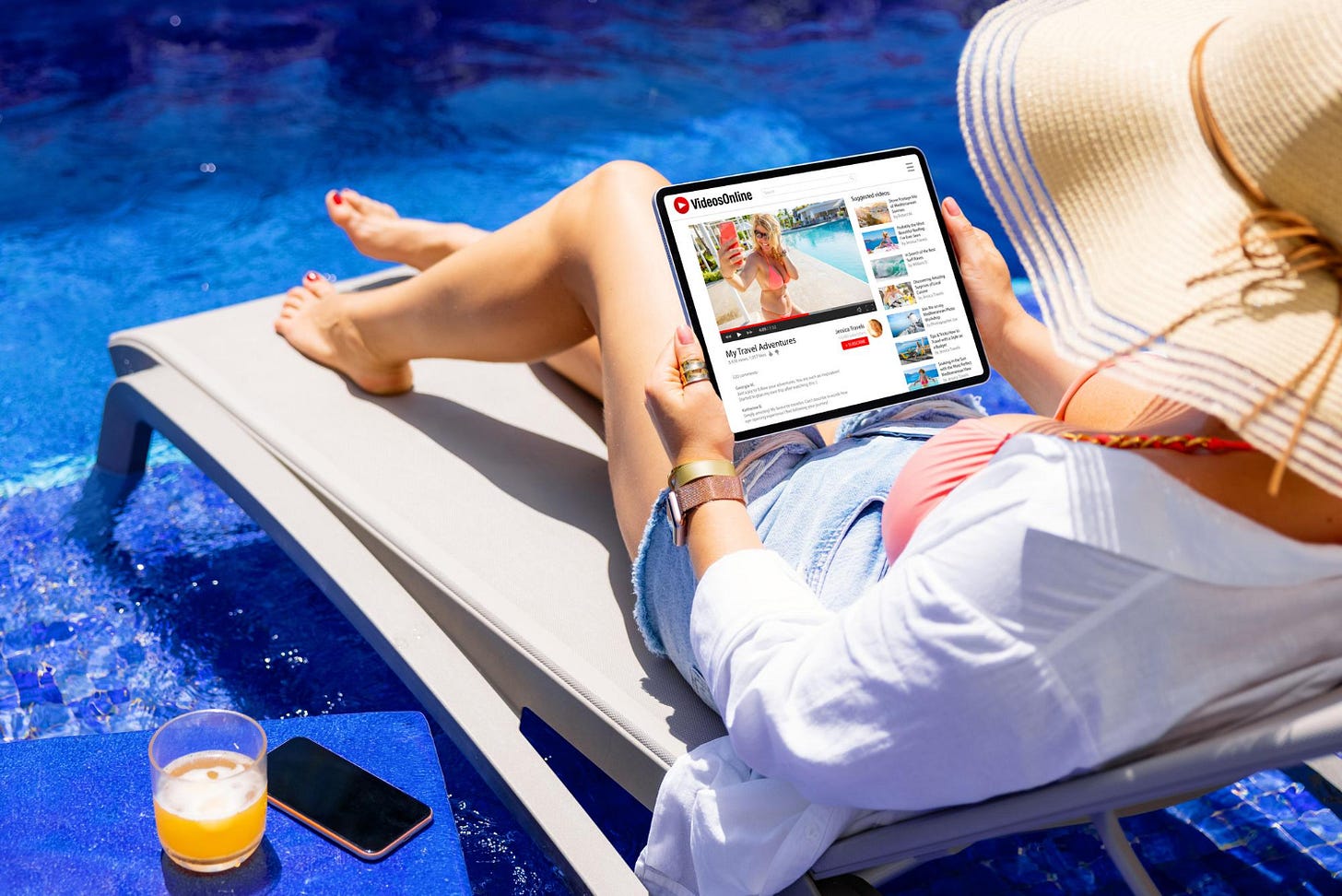Why a Social Media Marketing Strategy is Crucial for Hospitality Success
Maximising Your Reach and Revenue through Effective Social Media Strategies
Having a strong social media presence can make the difference between a successful and struggling hospitality business.
In this article, we will explore the importance of hospitality social media marketing for success and provide effective strategies to maximise reach and revenue.
Whether you are a hotel, restaurant, or any other hospitality business, understanding the power of social media marketing is crucial to your success.
Define Your Goals
Defining your goals is the first step toward creating an effective social media plan.
Are you aiming to build a following, generate more traffic, or both?
If your initial goal is to attract customer engagement and increase awareness of a new campaign, relying solely on likes and shares is not enough. You should also be looking at the number of visitors to your website, people talking about your brand, and engagement such as comments and queries.
SMART Goals for Hotels
Here are some examples of social media marketing goals for a hotel using SMART methodology, which stands for Specific, Measurable, Achievable, Relevant, and Time-bound:
Increase website traffic by 20% within the next six months by posting daily updates and creating targeted ads on Facebook and Instagram.
Improve online reputation by responding to all customer reviews within 24 hours and increasing positive reviews by 15% within the next quarter.
Grow average non-room revenue per guest by £50 by the end of the year by implementing a chatbot on the hotel's website and promoting upsells and add-ons through social media campaigns.
Increase direct bookings by 10% within the next quarter by offering exclusive discounts and promotions to social media followers who book directly through the hotel's website.
Increase social media engagement by 25% within the next three months by creating interactive content, such as polls and quizzes, and partnering with social media influencers to reach a wider audience.
Smart Goals for Restaurants
Here are some examples of SMART social media marketing goals for restaurants
Increase website traffic by 20% within the next 3 months through social media marketing efforts to boost online visibility and attract more potential customers.
Improve online reputation by increasing positive reviews on social media platforms like Google, Yelp, and Facebook by 30% within the next 6 months through engagement and providing excellent customer experiences.
Grow revenue by promoting catering services on social media platforms and achieving a 25% increase in catering orders over the next 6 months.
Increase direct bookings by 15% through social media advertising and promoting discounts and special offers for customers who book directly on the restaurant's website.
Increase social media engagement by 50% within the next 3 months by posting engaging content such as food photos, videos, and behind-the-scenes glimpses of the restaurant's daily operations.
Identify Your Audience
Social media marketing is crucial for hospitality businesses to maximise their reach and revenue, but finding the right audience is key to success. It's essential to market to people who will want your product or service. However, not every social media platform will work for every venue. It's helpful to try each one to see where you should concentrate your efforts.
But, how do you find your target audience? Each social media platform has tools for target marketing to your ideal audience, making it easier to find them in the millions of other users. For instance, you might gain a larger following on Facebook than on Twitter, so you would then put more energy into Facebook posts and ads to gain more followers.
To identify your target audience, you can create buyer personas. A buyer persona is a semi-fictional representation of your ideal customer based on market research, data, and educated guesses. This will help you tailor your social media marketing strategy to the right people.
Your Buyer Persona should include
Demographic information (age, gender, location, etc.)
Channels frequented (social media, email, website, etc.)
Motivations and pain points
Attributes, interests, and industry
Voice of customer data
Qualities, concerns, and questions of best customers
Assess Your Competition
Maximising your reach and revenue through effective social media strategies is crucial for hospitality industry success. One way to achieve this is by assessing your competition. However, it's important to avoid copying their methods. Instead, learn from the best and put your own spin on it.
To do this, take a peek at your competition's social media profiles. Take note of how they approach customer interaction, post structure, and content creation.
Evaluate how often they update and what types of content they use (video, pictures, text, animations, etc.). This will give you a good idea of what's working and what you can improve upon, allowing you to get creative and use it to your advantage.
Use these steps to conduct competitor research on social media
Identify your social media competitors.
Collect platform-specific data of your competitors.
Analyse your competitors' social media strategies.
Use social listening tools to gain insights.
Analyse your competitors' audience growth rate, engagement rate, hashtags, and top posts.
Use competitive analysis tools for head-to-head comparisons and share of voice insights.
Evaluate your competitors' content strategy.
Determine which posts get the highest engagement.
Conduct quarterly or biannual refreshes to set competitive benchmarks.
Develop A Content Plan
Creating a content plan ensures that you are posting creative and engaging content that resonates with your audience. Your content should be a mix of promotions, hot deals, and valuable information that your audience finds interesting.
It’s important to optimise and adapt your content for each social media platform.
For example, Instagram is a visual platform, so focus on posting high-quality pictures and videos that showcase your products and services. Twitter has a character limit, so make sure your message is concise and to the point. Facebook is a great platform for sharing longer-form content such as blog posts and articles.
To make sure your content resonates with your audience, put yourself in their shoes. What type of content would they find engaging? What kind of information would they find valuable? By understanding your audience's needs and wants, you can create content that is more likely to be shared, liked, and commented on.
Your content plan should include:
A clear understanding of the target audience and their preferences
A mix of promotional content, hot deals, and valuable information that resonates with the audience
A schedule for posting content on different social media platforms
Social media goals and objectives
A list of keywords and hashtags to include in social media posts
A plan for user-generated content and how to encourage it
A content creation and curation strategy
A budget for social media advertising
A strategy to monitor and respond to social media comments and messages
A system for measuring the success of social media campaigns.
One very important aspect of social media marketing is audience engagement.
While it's important to maintain a professional presence, it's equally vital to show the human side of your company. This can be achieved through behind-the-scenes media and interactive content that encourages conversation with customers.
It is crucial not to neglect your current fan base. Your existing followers are your most valuable supporters, and it's important to take small but significant steps to increase their engagement. To achieve this, you should identify the type of content that resonates with them and prompts them to like, comment, and share your posts.
As you gradually expand your fan base, it is imperative to prioritise quality over quantity. This means focusing on building a loyal following of engaged fans rather than just trying to gain a large number of followers quickly.
By building engagement with existing fans and attracting new ones through user-generated content, you can create a loyal following that will support your brand for years to come.
Crafting the Perfect Message
For hospitality businesses, a well-crafted message is key to building a strong brand reputation.
Your message should be clear, memorable, and meaningful to your customers. Just like big brands, your business needs a message that resonates with your target audience.
Start by identifying the core concept of your message, then develop two to three variations that are tailored to your audience. This creates a message hierarchy that you can use to organise your content.
Remember, your message should be consistent across all social media platforms to reinforce brand identity.
Take-Away
With the majority of travelers and diners using social media to plan their trips and make purchasing decisions, it is essential for hospitality businesses to have a strong presence on these platforms.
By implementing effective social media strategies, hospitality businesses can increase their reach and revenue, as well as engage with their existing fans.
It is important for hotels and restaurants to stay up-to-date with the latest trends and technologies in social media marketing in order to remain competitive in today's market.
Here's to Your Success 🥂
Don't let your hospitality business fall behind in the digital age.
Subscribe now to stay up-to-date on the latest social media marketing trends and strategies, and learn how to maximise your reach and revenue in this highly competitive market.






